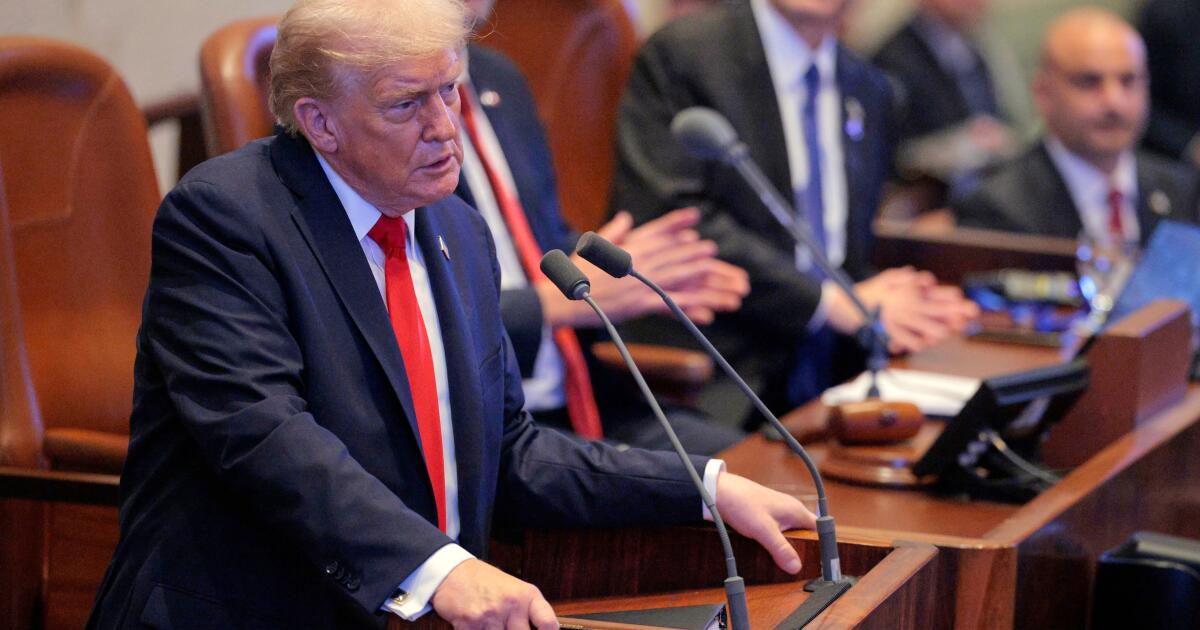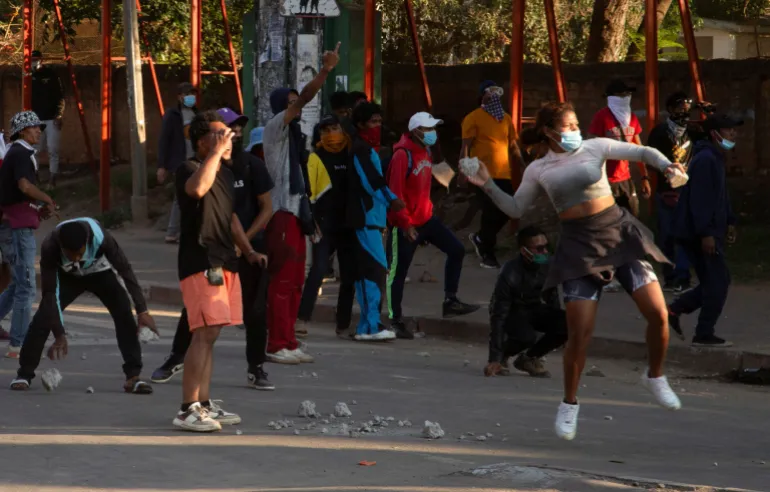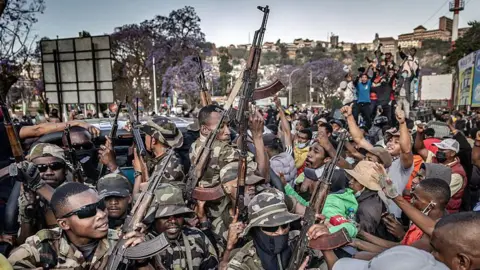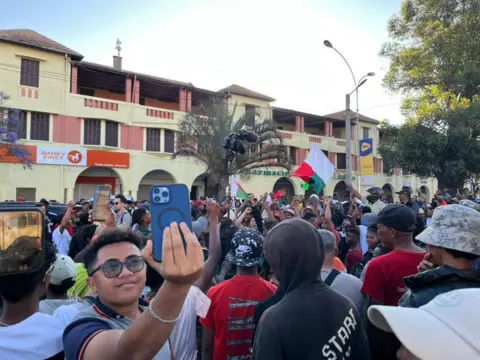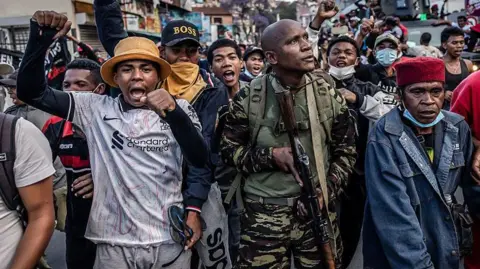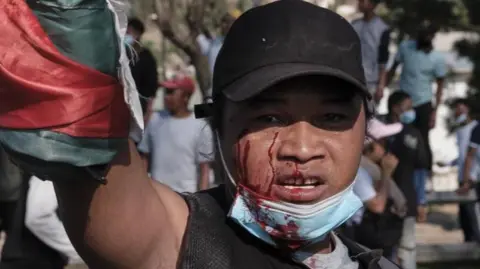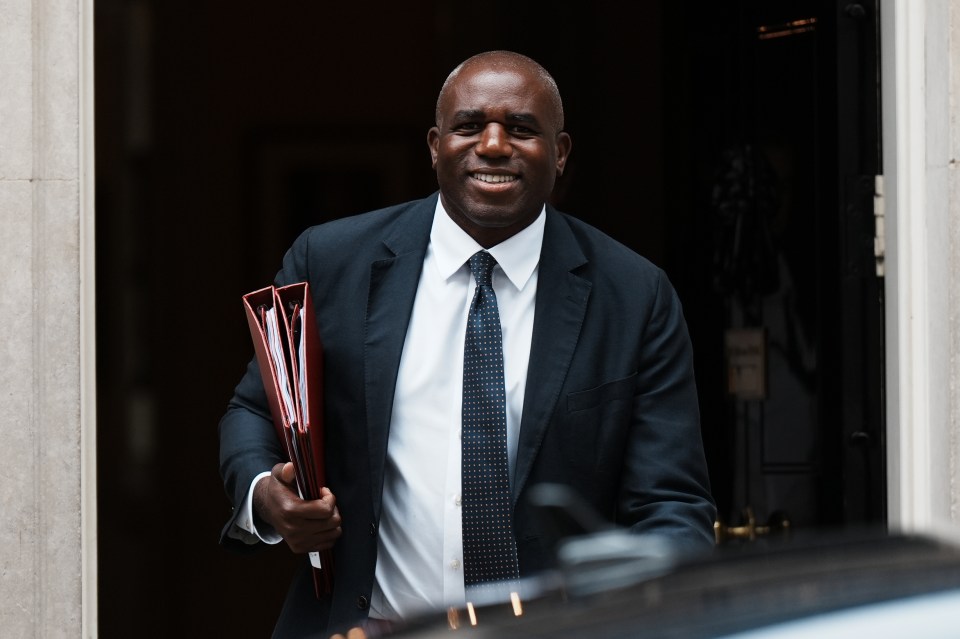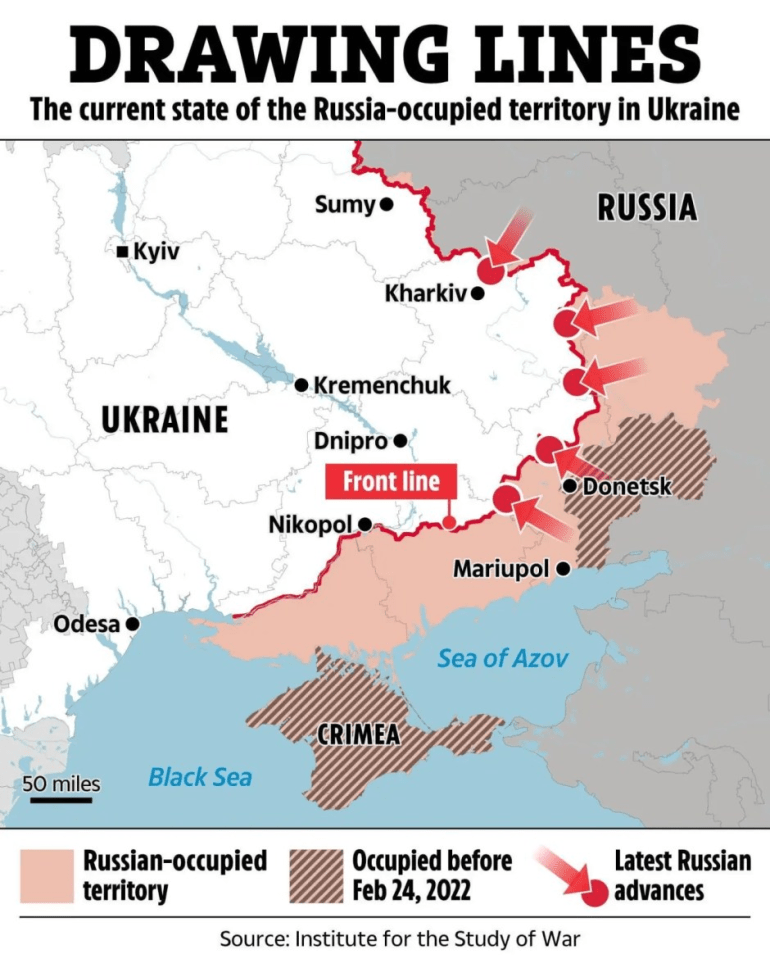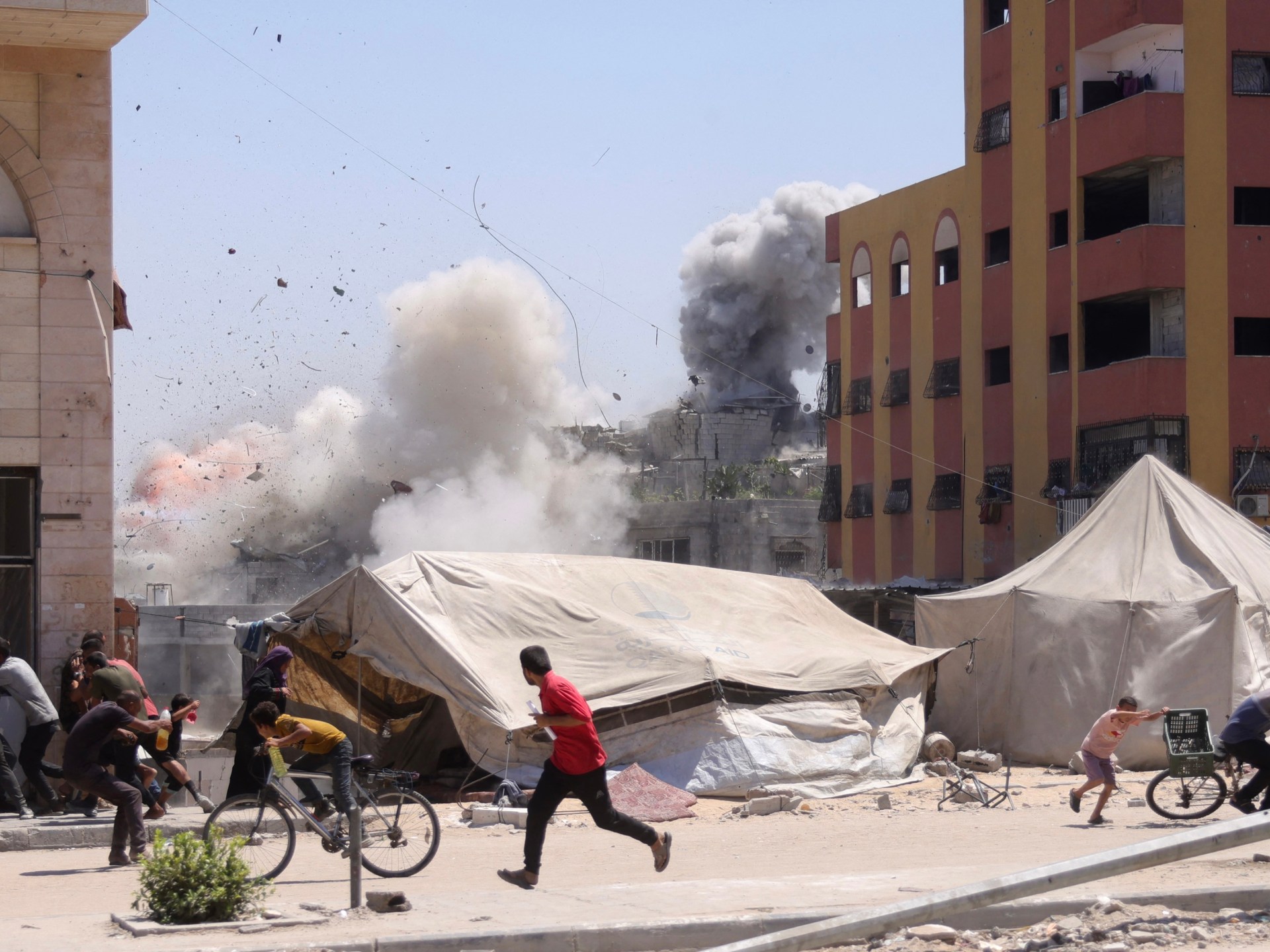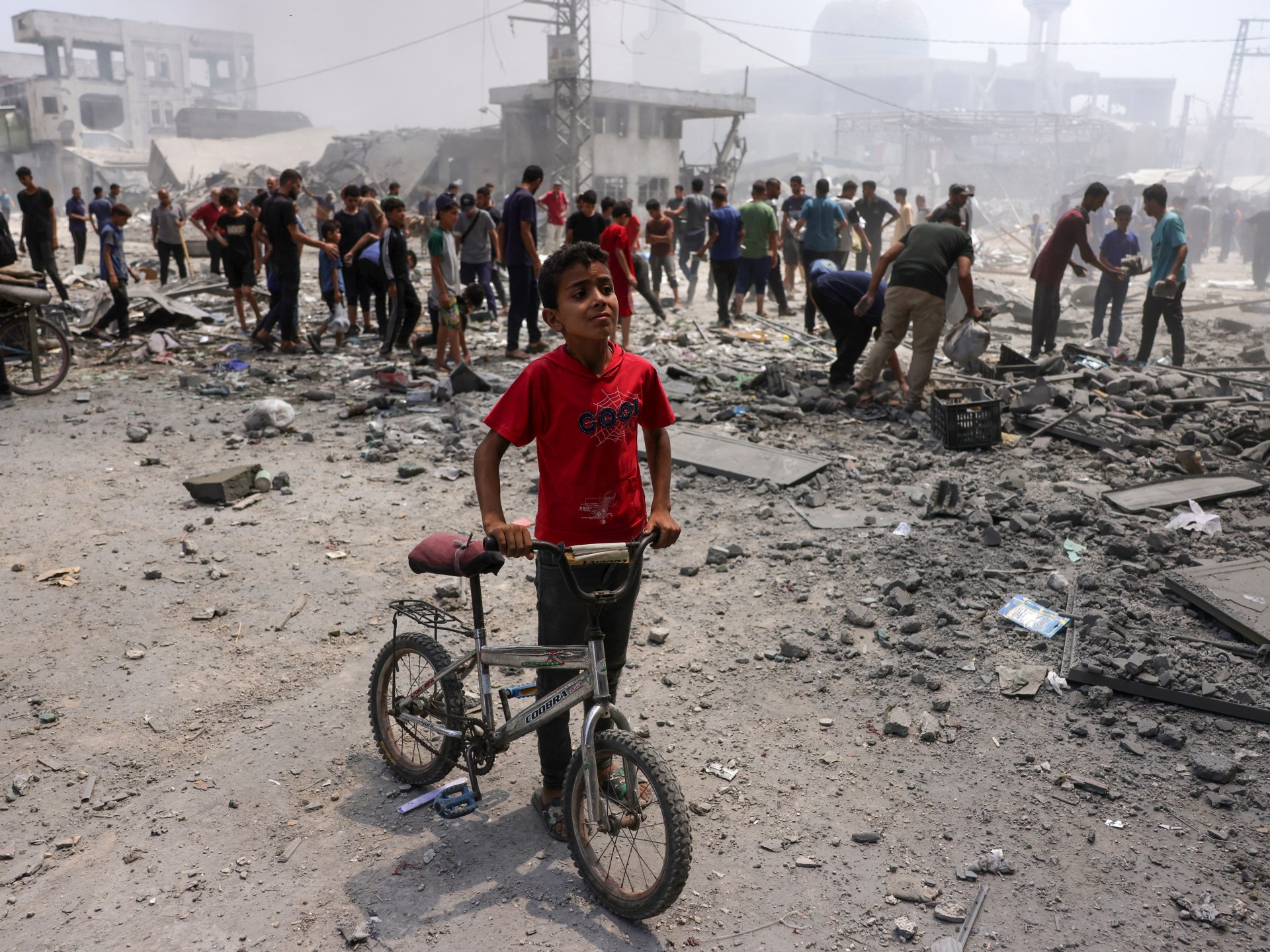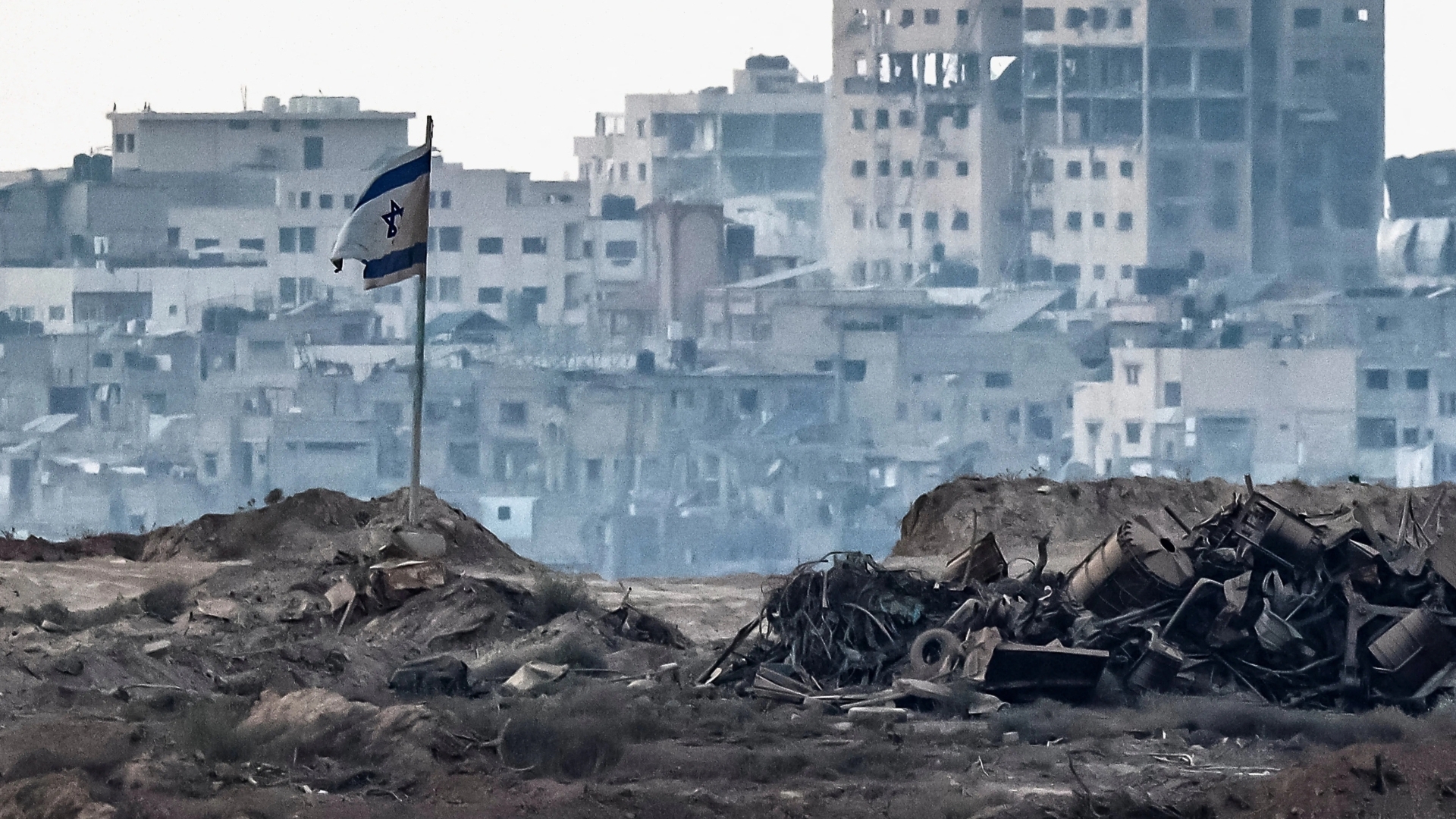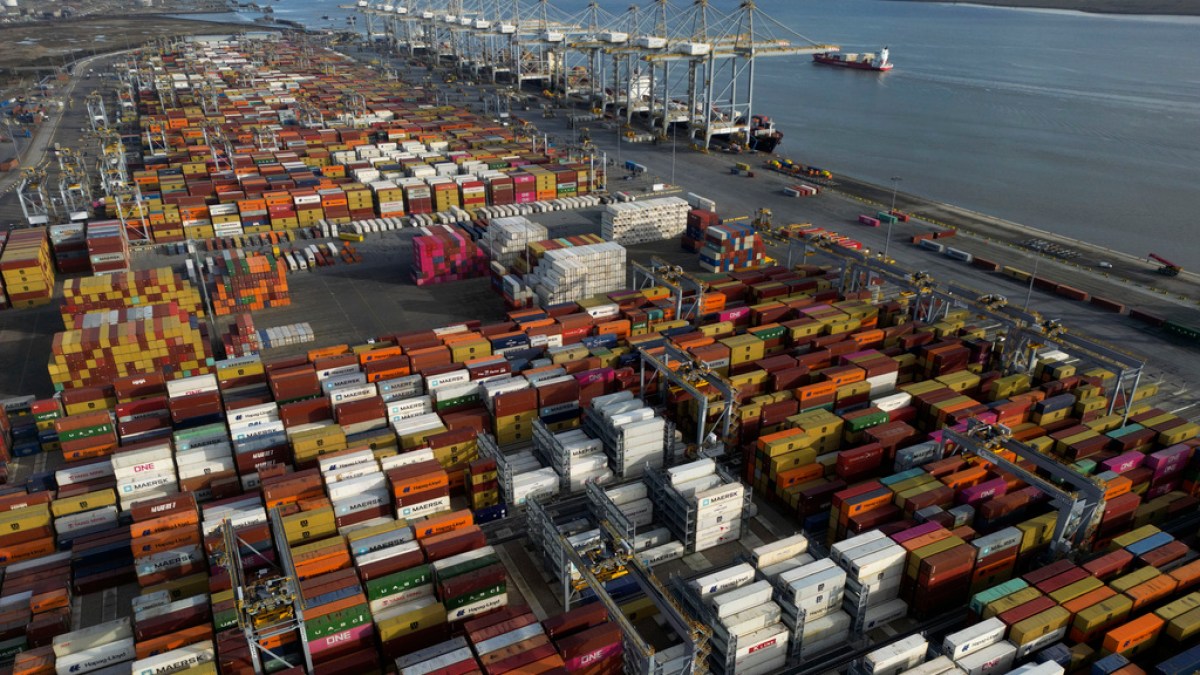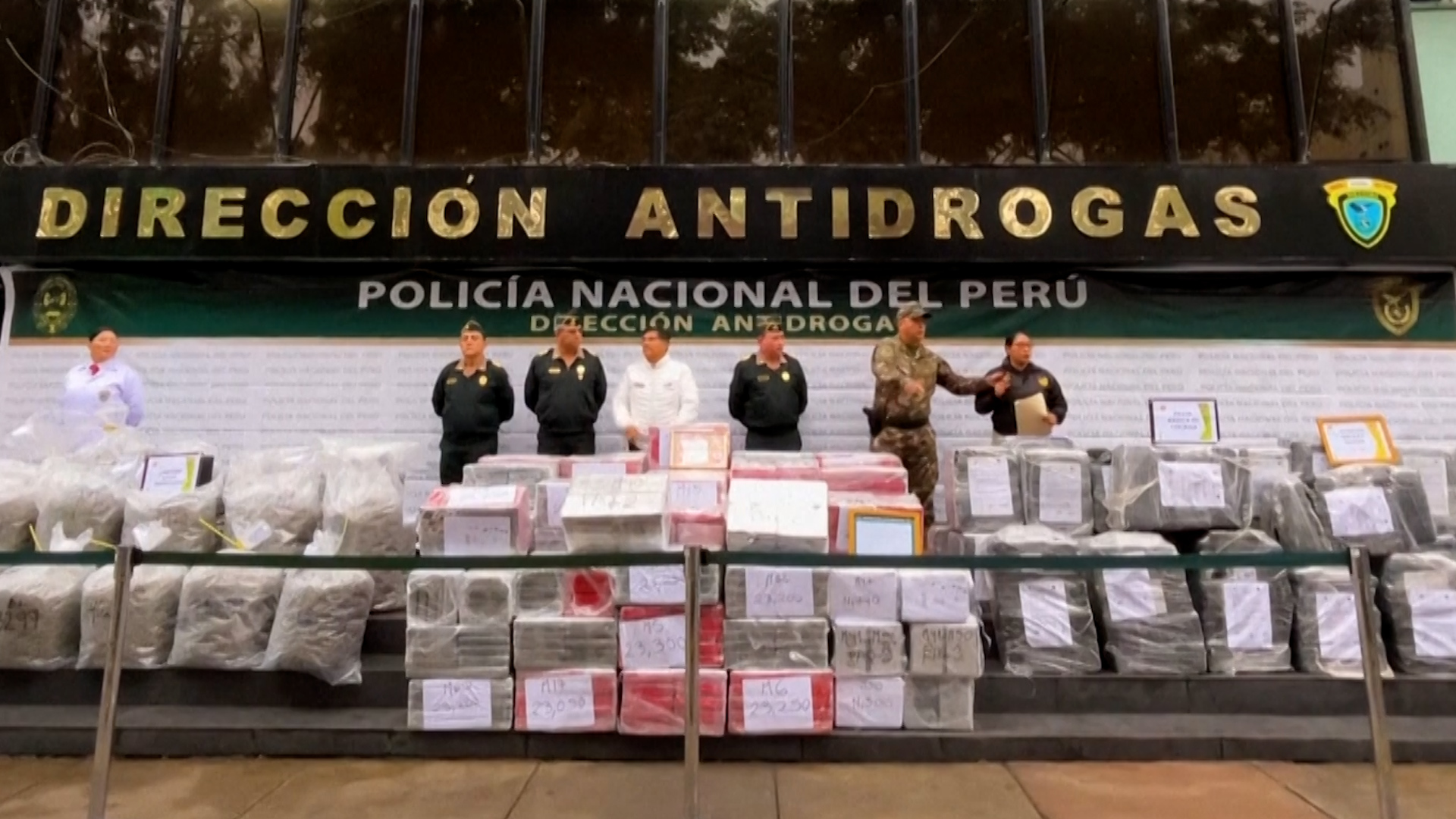Trump arrives in Egypt for Gaza summit after urging Israel to seize a chance for peace
SHARM EL SHEIKH, Egypt — President Trump arrived in Egypt on Monday for a global summit on Gaza’s future as he tries to advance peace in the Middle East after visiting Israel to celebrate a U.S.-brokered ceasefire with Hamas.
The whirlwind trip, which included a speech at the Knesset in Jerusalem earlier in the day, comes at a fragile moment of hope for ending two years of war between Israel and Hamas.
“Everybody said it’s not possible to do. And it’s going to happen. And it is happening before your very eyes,” Trump said alongside Egyptian President Abdel Fattah el-Sisi.
More than two dozen countries are expected to be represented at the summit. Israeli Prime Minister Benjamin Netanyahu was invited but declined, with his office saying it was too close to a Jewish holiday.
Despite unanswered questions about next steps in Gaza, which has been devastated during the conflict, Trump is determined to seize an opportunity to chase an elusive regional harmony.
“You’ve won,” he told Israeli lawmakers at the Knesset, which welcomed him as a hero. “Now it is time to translate these victories against terrorists on the battlefield into the ultimate prize of peace and prosperity for the entire Middle East.”
Trump promised to help rebuild Gaza, and he urged Palestinians to “turn forever from the path of terror and violence.”
“After tremendous pain and death and hardship,” he said, “now is the time to concentrate on building their people up instead of trying to tear Israel down.”
Trump even made a gesture to Iran, where he bombed three nuclear sites during the country’s brief war with Israel earlier this year, by saying “the hand of friendship and cooperation is always open.”
Trump is on a whirlwind trip to Middle East
Trump arrived in Egypt hours late because speeches at the Knesset continued longer than expected.
“They might not be there by the time I get there, but we’ll give it a shot,” Trump joked after needling Israeli leaders for talking so much.
Twenty hostages were released Monday as part of an agreement intended to end the war that began on Oct. 7, 2023, with an attack by Hamas-led militants. Trump talked with some of their families at the Knesset.
“Your name will be remembered to generations,” a woman told him.
Israeli lawmakers chanted Trump’s name and gave him standing ovation after standing ovation. Some people in the audience wore red hats that resembled his “Make America Great Again” caps, although these versions said “Trump, The Peace President.”
Netanyahu hailed Trump as “the greatest friend Israel has ever had in the White House,” and he promised to work with him going forward.
“Mr. President, you are committed to this peace. I am committed to this peace,” he said. “And together, Mr. President, we will achieve this peace.”
Trump, in an unexpected detour during his speech, called on the Israeli president to pardon Netanyahu, whom he described as “one of the greatest” wartime leaders. Netanyahu faces corruption charges, although several hearings have been postponed during the conflict with Hamas.
The Republican president also used the opportunity to settle political scores and thank his supporters, criticizing Democratic predecessors and praising a top donor, Miriam Adelson, in the audience.
Trump pushes to reshape the region
The moment remains fragile, with Israel and Hamas still in the early stages of implementing the first phase of Trump’s plan.
The first phase of the ceasefire agreement calls for the release of the final hostages held by Hamas; the release of hundreds of Palestinian prisoners held by Israel; a surge of humanitarian aid to Gaza; and a partial pullback by Israeli forces from Gaza’s main cities.
Trump has said there’s a window to reshape the region and reset long-fraught relations between Israel and its Arab neighbors.
“The war is over, OK?” Trump told reporters traveling with him aboard Air Force One.
“I think people are tired of it,” he said, emphasizing that he believed the ceasefire would hold because of that.
He said the chance of peace was enabled by his Republican administration’s support of Israel’s decimation of Iranian proxies, including Hamas in Gaza and Hezbollah in Lebanon.
The White House said momentum is also building because Arab and Muslim states are demonstrating a renewed focus on resolving the broader, decades-long Israeli-Palestinian conflict and, in some cases, deepening relations with the United States.
In February, Trump had predicted that Gaza could be redeveloped into what he called “the Riviera of the Middle East.” But on Sunday aboard Air Force One, he was more circumspect.
“I don’t know about the Riviera for a while,” Trump said. “It’s blasted. This is like a demolition site.” But he said he hoped to one day visit the territory. “I’d like to put my feet on it, at least,” he said.
The sides have not agreed on Gaza’s postwar governance, the territory’s reconstruction and Israel’s demand that Hamas disarm. Negotiations over those issues could break down, and Israel has hinted it may resume military operations if its demands are not met.
Much of Gaza has been reduced to rubble, and the territory’s roughly 2 million residents continue to struggle in desperate conditions. Under the deal, Israel agreed to reopen five border crossings, which will help ease the flow of food and other supplies into Gaza, parts of which are experiencing famine.
Roughly 200 U.S. troops will help support and monitor the ceasefire deal as part of a team that includes partner nations, nongovernmental organizations and private-sector players.
Superville and Megerian write for the Associated Press. Megerian reported from Washington. AP writers Will Weissert and Seung Min Kim in Washington contributed to this report.
